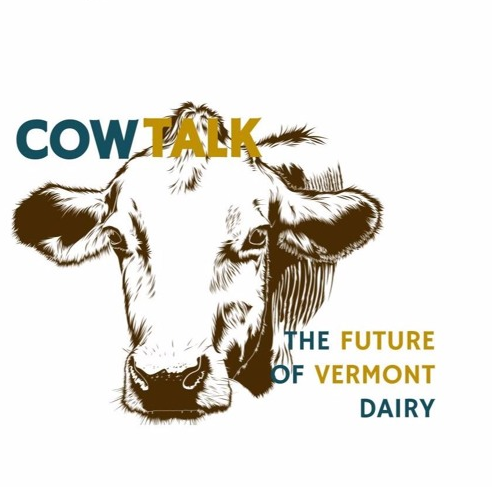Student Podcast Explores Vermont Dairy Farmers’ Challenges, Strategies
MIDDLEBURY, Vt. – A group of Middlebury students has created a podcast on the challenges of dairy farming in Vermont. The three-episode series, CowTalk: The Future of Vermont Dairy, offers nine local farmers’ stories of the difficulties they face and what they enjoy about their work. The students completed the project for an environmental studies senior seminar, “A Holistic Exploration of Vermont’s Dairy Industry.”
“The stereotypes about farming aren’t true,” said Kristina Ohl ’17, one of the five students who created the podcast. “It’s more complicated than people think. Farmers are well educated and they have to deal with new technology all the time. People don’t realize that their image of farming is so different from the reality.”
Ohl collaborated on the podcast with Nevie Wetmore ’17, Maggie Danna ’16.5, Heather Tourgee ‘17, and Elaine Forbush ’17. Wetmore, a Vermonter, works on a dairy farm during vacations but the other students had no prior experience with farming. Of the nine farmers interviewed for the project, eight are from Addison County and one is from Chittenden County.
Each podcast episode begins with a reminder of just how important dairy farming is to Vermont. According to the students’ research, fewer than 1,000 farmers care for more than 132,000 cows in the most dairy-reliant state in the country. The students also created the CowTalk website, where they posted the podcast and their research, including the fact that the industry generates $2.2 billion annually in the state.
The first episode captures the farmers’ love for their way of life and their plans for passing their farms on to the next generation. “I love what I do for work. I love it, love it, love it,” says George “Jeep” Madison of Madison Dairy, a small organic farm in Shoreham. “Every day’s a different challenge.” Other farmers echo Madison’s comments and describe their own succession plans.
In the second episode, farmers offer their perspectives on what makes dairy farming in Vermont today so difficult, including depressed milk prices, new regulations regarding water quality, and the decreasing number of dairy farms.

CowTalk podcast and website.
“The dairy business is a lot like a roller coaster,” said farmer Phil Livingston of Rail View Farm, a large conventional farm in New Haven. “My brother and I feel milk prices are what they are. The only thing we can change is what we do every day. That’s all we’ve got control over.”
In the third episode, some farmers describe strategies they’ve implemented to make their farms more efficient, such as expanding their herds or investing in robotic milking to combat a labor shortage.
“I wish that more classes at Middlebury could take advantage of being near dairy farms,” said Tourgee. “Lots of what we learn is theoretical. We’re here for four years but we don’t see a farm down the road. It’s so good to get the farmers’ perspectives.”
Students in the class who were not involved in the podcast worked on three other projects related to dairy farming in Vermont: water quality, farmworker rights, and energy needs and biomethane. Each group collaborated with a community mentor. Ryan Patch, senior agriculture development coordinator at the Vermont Agency of Agriculture, Food and Markets, worked with the students who created the podcast.
“This project comes at a good time,” said Patch. “New water quality standards for farms went into effect December 5 and the difficulties of implementing them are compounded by historically low milk prices. We are trying to make the new rules workable for farmers and point them to available resources. The podcast gives farmers a voice and helps us in our communications with them since it conveys the complexities they currently face.”
“The real soul of the course pivots around the fact that we use a community-engaged learning model,” said Mez Baker-Médard, assistant professor of environmental studies, who taught the class. “There is immense depth and breadth of knowledge in our community that extends well beyond the college’s walls.”
